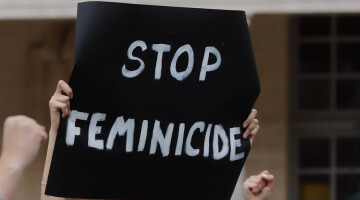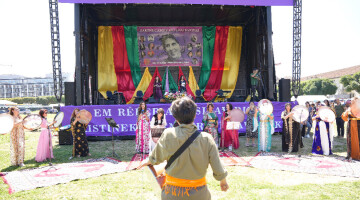Women from Switzerland, who had held a national strike demanding equal rights for the first time on 14 June 1991, carried out a national strike demanding equality, justice and freedom again after 28 years, on 14 June 2019. In 2020, the women did not take to the streets on June 14th due to Covid-19. This year, they go on a strike with the same demands throughout the country since their demands were not paid attention despite two years passing over. The women in the country who strike work within the actions led by unions and women’s organisations take to the streets in the cities where they live. The national strike is also supported by a number of political parties and civil society organisations.
REBELLION AGAINST THE INEQUALITY OF WAGES
In addition to wages inequality between men and women as the main argument of the national strike, women strike work and take to the streets with demands for “Respect, end to sexist policies, more leisure and equality”. The other significant points leading the women to go on a strike are women’s exclusion from many fields on the basis of sexist discrimination, sexist violence and anger against the patriarchal system.
"RESISTANCE IS THE ONLY WAY"
The women who cannot organise a centralised action due to Covid-19 measures join the actions and activities held in each cities and voice their demands.
With the colour of purple, they fill the streets and carry banners reading, “Equal wage for equal work”, “Neither patriarchy nor restriction” and “Resistance is the only way”. The activist women call on the authorities to take action against the discriminative policies and practices and convey the message that women will continue to be in the streets as well as inequality continues.
The capital city Bern is one of the headquarters of the actions held within the women’s national strike. Earlier in the morning, women put up stands on thoroughfares of the city to prepare for the grand march to be held at 18:00. Tabea Roli and Leena Schmitter, administrators of UNIA Trade Union and Valentina Pagani, one of the strikers, spoke to ANF and pointed out the significance of women’s national strike.
Within the scope of Women’s National Strike, simultaneous marches will be held in multiple cities in the evening.
DEMANDS OF THE STRIKERS
Declaring their reasons for the strike in their manifests, women list their main demands as follows:
“We go on a strike because:
We are tired of wages inequality and discrimination.
We demand an income to provide a respectful life.
We demand our domestic labour to be recognised as a work and be shared.
We demand our work time to be declined in consideration of our domestic works.
We demand a collective division of labour for child-care and education.
We demand the right to freely make choice about our gender and sexuality.
We, as women, demand freedom and respect for our choices.
We reject sexist, homophobic and transphobic violence.
The right to asylum is a fundamental right, we reject to be repatriated while our lives are endangered.
We demand the masculine langue to be brought to an end in the media, education system and other fields.”














